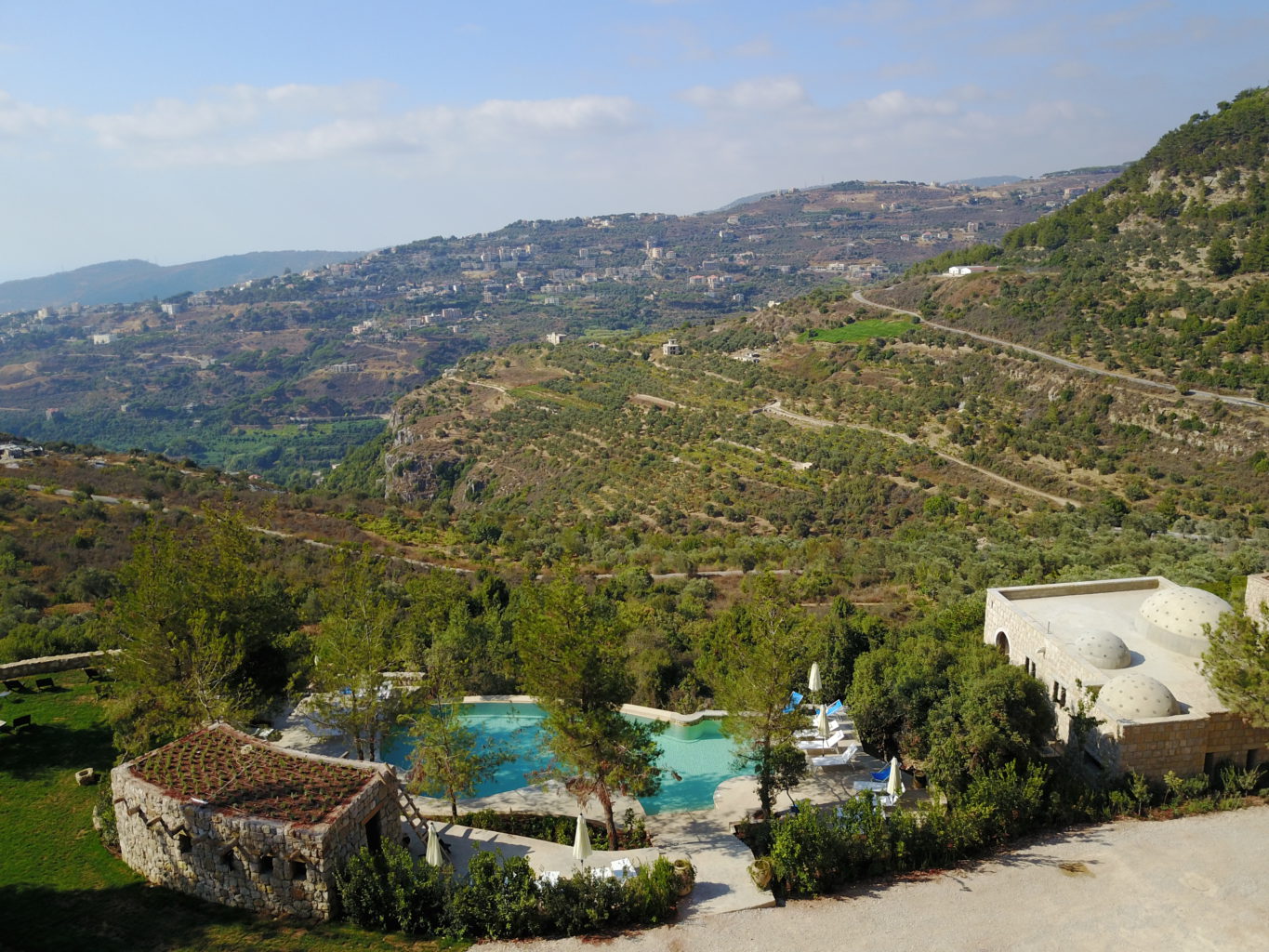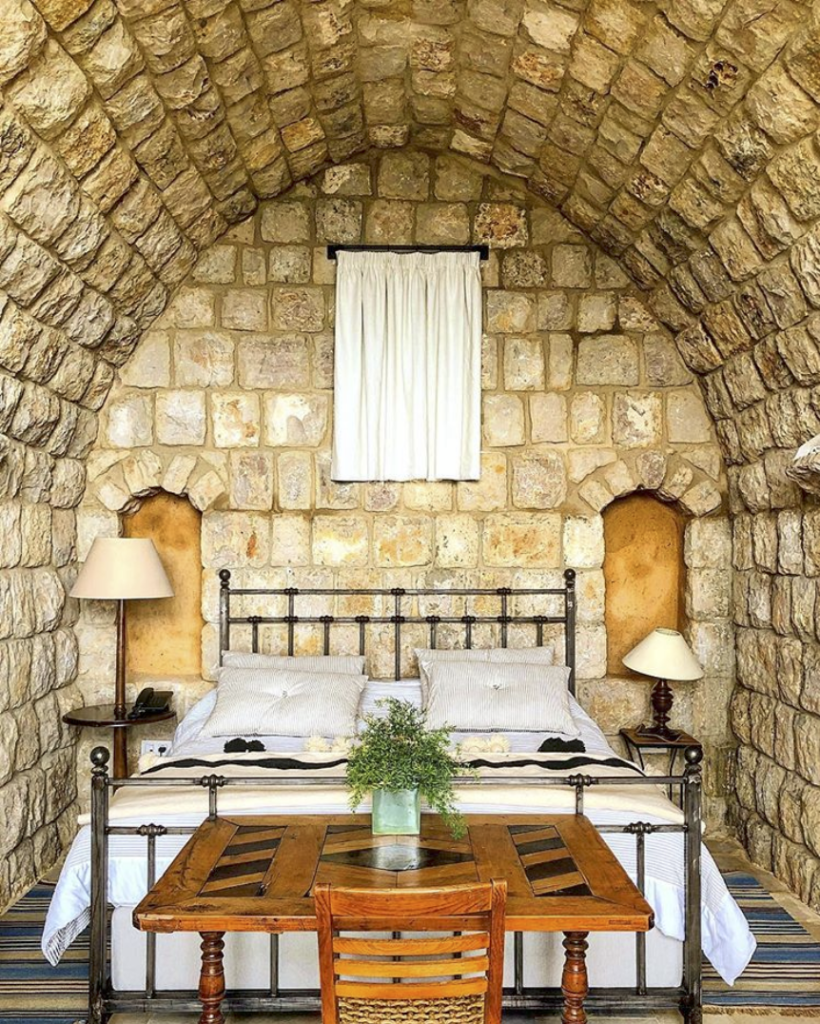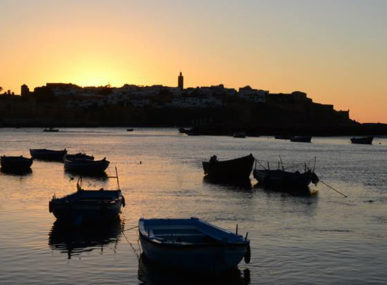Sustainable design inside and out:
With a new manager in Kareem, Bkerzay was open for business.
Visitors will be the first to realize each guesthouse possesses a unique layout. The infinity pool is an oddly-shaped basin that overlooks the valley. There is method to the madness, though. “Not a single tree was taken out to build the project,” Ramzi says. “On the contrary, the existing trees dictated the architecture and the layout of the entire project.”
Whereas the guesthouses are complex in their circumvention of nature, the building style is refreshingly simple. Ramzi drew inspiration from traditional Lebanese and vernacular Mediterranean architecture: stone walls and arches, and rooftops planted with flowers. “There is already a lot of natural beauty here, which is why Lebanese architecture is a bit understated,” Kareem says.
Bkerzay’s interiors are also a throwback to traditional Lebanese handicraft. That is where another family member comes in: Zeina Takieddine, an experienced interior designer, and Ramzi Salman’s sister. Zeina led the interior designs of Bkerzay alongside Lebanese interior designer, May Daouk.
As a child, Takieddine remembers visiting their grandparents in Baakleen, a town in Lebanon’s Chouf District. Their grandmother was head of the local crochet workshop, and one of the first actions Takieddine took when working on Bkerzay’s interiors was to approach these female artisans.
“I wanted the old technique, but when you go to their workshop there are no new ideas. So we looked for little architectural details and we created something new,” Takieddine describes. “Each lady had their own little salt and pepper to add to the design.” The outcome of those designs are now displayed on Bkerzay’s curtains.
Being faithful to the concept of recycling most of the furniture is sustainably sourced from charming old brocante pieces to create a rustic, charming, and authentic feel. “It’s like walking into your grandparents’ house, but with the comfort of 2018,” expands Kareem of the decor.
Bkerzay’s many sustainable measures:
Traditional in its design, Bkerzay is advanced when it comes to energy conservation and sustainability. Solar panels produce two-thirds of the eco-lodge’s electricity, and more are being added each season. Rooms contain no heavy energy appliances, and heating comes from dry wood that was cleared from the forest, mitigating the risk of summer fires.
Bkerzay is also zero-waste, thanks to Cedar Environmental, a Beirut-based NGO that collects, recycles, and upcycles waste of all kinds. In the future, greywater will be reused for irrigation












